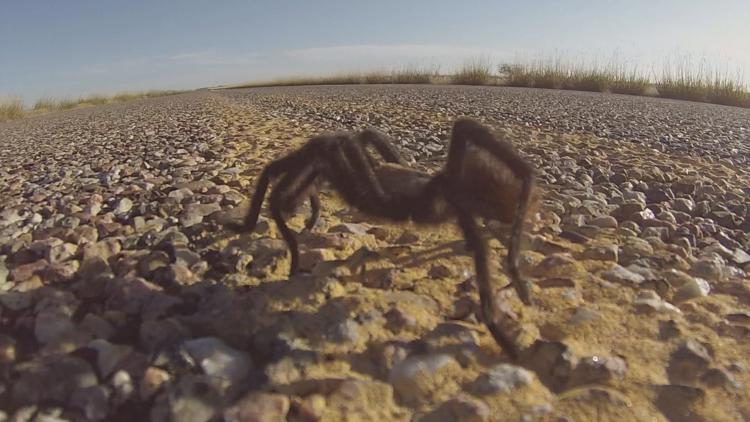LA JUNTA – Finding a mate is risky business this time of the year for the Oklahoma brown tarantulas that populate southeastern Colorado.
Thousands of male tarantulas are scouring the plains for a mate -- provided they can safely cross the roads that stripe the Arkansas Valley.
Colorado State University professor Whitney Cranshaw was out along a rural road south of La Junta on a recent evening as furry spiders crept across the macadam.
"Car!" Cranshaw announced. "I hope this guy doesn't hit it."
A solitary spider sat just off center on the road - just where tires tend to tread.
"Nailed him," Cranshaw said.
"Maybe one in 10 gets run over on a night like this," said Cranshaw, who comes to witness the mating season migration annually.
"I come out here just because it's one of the more interesting events to see," Cranshaw said. "They're very charismatic animals."
Charismatic and determined. The males live just a short time after reaching sexual maturity at age eight, unlike their female counterparts, which can live for decades.
"They're gonna be dead by Christmas," Cranshaw said. "Once they wander and mate and it gets cold, they don't make it."
Cranshaw picks up a few spiders to take back to his CSU classroom. He says they're excellent conversation starters. And, despite their fearsome reputation, are largely harmless.
"They're not a dangerous spider. They don't have venom that would hurt people," Cranshaw said. "They're not going to bite unless you physically grab them."
His hope is that Coloradans will get to better know the spiders and fear them less.
"Americans are weirder about spiders than pretty much any place on the planet," Cranshaw said. "By a long shot."
(© 2015 KUSA)



